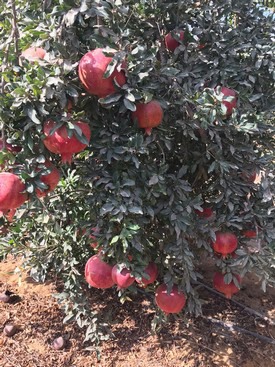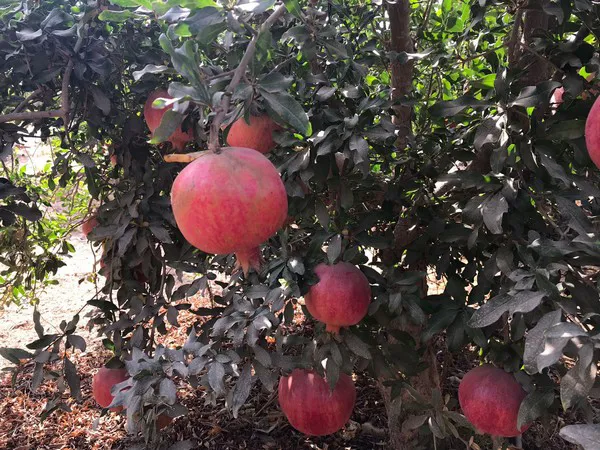The Egyptian pomegranate season is in full swing and demand has been strong in both the international and domestic markets. One exporter takes pride in the fact that the pesticide residue test detected no traces of any pesticides, which was a major selling point for the company.
May Salem, managing director for Egyptian fruit exporter Finbi, states they’re still in the midst of their Wonderful pomegranate season and have increased their production by 15 per cent compared to last year: “FinBi started harvest of its Wonderful pomegranates during the third week of September this year. The Wonderful variety is tasty for eating, ideal for cold storage and good for processing too. The weather is at 30 degrees now in Egypt and we’re not rushing anything, especially since our plots are free of pests. We harvest about 20 tons a day at the moment. For our company we estimate that we’ll harvest about 500 tons in total, which is about an increase of 15 per cent compared to last year. Despite the extremely hot weather in the summer, our engineers have worked hard on external and internal coloration of the fruit and sizes of generations.”
 Salem states that one of their unique selling points this year was the lack of any trace of pesticides when tested. “The demand is strong this season from both the local market and the international market too. Being a super fruit, pomegranates are now eaten fresh as well as used in cakes, yoghurt and juices. We see demand from local traders, manufacturers and exporters for the pomegranates. Our unique selling point this year was the pesticide residue test, which detected no traces of any pesticides whatsoever.”
Salem states that one of their unique selling points this year was the lack of any trace of pesticides when tested. “The demand is strong this season from both the local market and the international market too. Being a super fruit, pomegranates are now eaten fresh as well as used in cakes, yoghurt and juices. We see demand from local traders, manufacturers and exporters for the pomegranates. Our unique selling point this year was the pesticide residue test, which detected no traces of any pesticides whatsoever.”
According to Salem, the local market turned out to be rather profitable this season: “The local market was indeed lucrative this year as we got a number of traders who required large volume for the local fresh market. We also got demands from the Russian and Arab markets. There were Turkish buyers too. The prices for Egyptian pomegranates have been slightly higher than they were last year. Exporters buy per ton with specifications for sizes. This year there was a preference for fruit sizes of 400-500 grams. Local traders however, prefer to buy per ton without grading.”

“Fruit transport, cold storing and shipping has been easy, but is costly at the moment. The roads are much better now in Egypt and governorates are well connected through highways. The coding system is still in place for exporting of fruit under the Egyptian agricultural quarantine and our farm was coded again this year. Many of Egypt’s fruits were affected last season by climate change, including grapes and mangoes. We were glad that pomegranate was resilient and not impacted as harshly as some others.” Salem concludes.
For more information:
May Salem
FinBi for Land Reclamation and Agriculture Development
Tel: +202 37495616
Email: may@natesngrapes.com
www.natesngrapes.com
